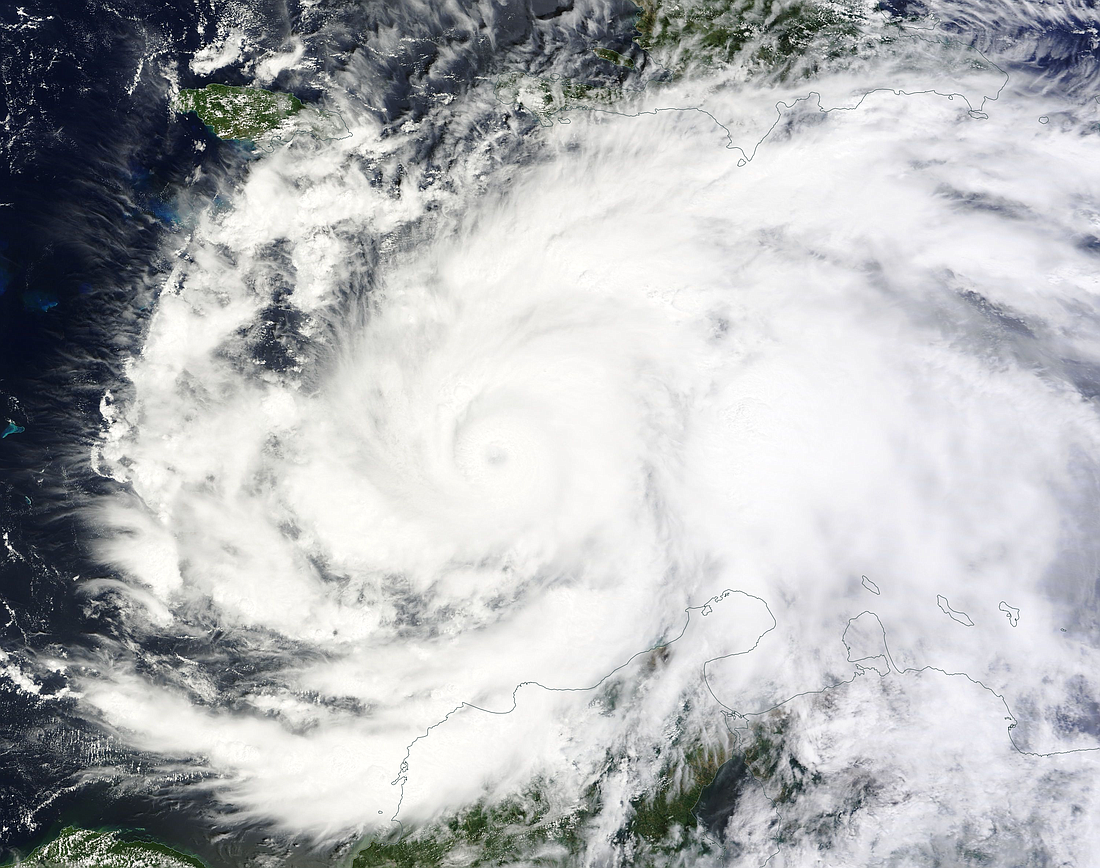- November 23, 2024
-
-
Loading

Loading

Hurricane season is here and the National Hurricane Center has predicted between 17 and 25 named storms, 4-7 of which the NHC predicts will become major hurricanes.
A major hurricane is a Category 3, a hurricane that reaches above 110 mile-per-hour winds. Hurricane season officially kicked off on June 1 and goes through November 30 and Volusia and Flagler Counties are urging residents to prepare for storms early.
The increased activity is because of the change in sea surface temperatures, according to a presentation Flagler County Emergency Management Director Jonathan Lord gave to the Flagler County Commission in on May 20.
In 2023, there were 19 named storms but 96% of all major hurricanes impact between mid-August and mid-October.
Sea surface temperatures are predicted to be above average this summer, Lord said, which is the number one thing to fuel hurricanes.
“It’s definitely a concern for us this year,” he said.
A predicted increase in the amount of dust coming from the Sahara Desert in Africa could counteract some of the predicted storm activity, he said, as well as if there are any volcanic eruptions in Central America. Lord said it is something “we’re watching” as the hurricane season progresses.
The State of Florida has implemented a two-week sales tax holiday in order to help residents prepare for the hurricane season ahead. It began on June 1 and will end on June 14, according to a Flagler County press release. A second sales tax holiday will be held at the peak of hurricane season, from Aug. 24-Sept. 6.
Below is a list of all the qualifying sales tax holiday items:
Selling for $10 or less
Wet dog or cat food if sold individually or the equivalent if sold in a box or case
Selling for $15 or less:
Manual can openers; collapsible or travel-sized food or water bowls for pets; cat litter pans; pet waste disposal bags; hamster or rabbit substrate.
Selling for $20 or less:
Reusable ice packs; leashes, collars, and muzzles for pets; pet pads
Selling for $25 or less:
Cat litter weighing 25 or fewer pounds
Selling for $40 or less:
Candles; flashlights; lanterns; pet beds.
Selling for $50 or less:
Portable self-powered radios, two-way radios, or weather-band radios; gas or diesel fuel tanks; batteries, including rechargeable batteries, listed sizes only – a AA-cell, AAA-cell, C-cell, D-cell, 6-volt, 9-volt.
Selling for $60 or less:
Nonelectric food storage coolers; portable power banks
Selling for $70 or less:
Smoke detectors or smoke alarms; fire extinguishers; carbon monoxide detectors
Selling for $100 or less
Tarpaulins or other flexible waterproof sheeting; ground anchor systems; portable pet kennels and carriers; ratchet straps; tie-down kits; dry dog or cat food weighing less than 50 pounds.
Selling for $3,000 or less:
Portable generators used to provide light or communications or to preserve food in a power outage.
“As with food, water, and medications, we recommend having seven days’ worth of supplies at the ready – not just for hurricanes, but all emergencies,” Lord said. “Use this sales tax holiday to buy essentials as your first step in preparedness.”
According to information from both counties, residents are urged decide early on where they will go if an evacuation order is given.